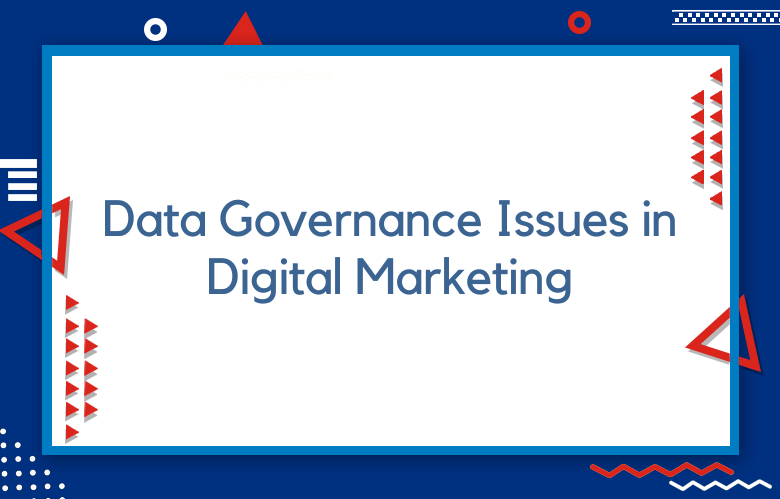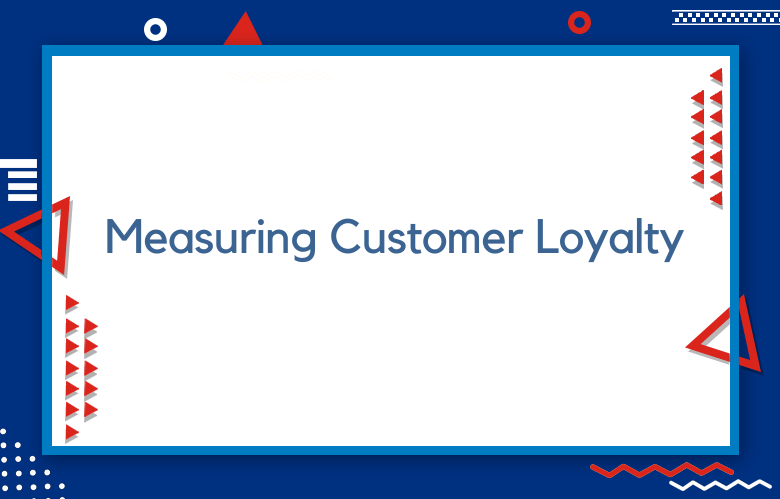Data Governance Issues in Digital Marketing

Digital marketing has been taking over the world – and we’re not exaggerating. With the pandemic changing people’s lives, many businesses have used digital marketing to interact with their consumers.
Marketing campaigns that effectively reach and engage your target audience are critical in maintaining a steady revenue stream.
However, digital marketing campaigns could be at risk without proper data governance. In this blog post, we’ll discuss the top data governance issues in digital marketing and how to navigate them.
Understanding the Importance of Data Governance Issues in Digital Marketing
In digital marketing, data is the lifeblood of every campaign and strategy. With constant technological advancements and the rising demand for personalized consumer experiences, companies need more data than ever to understand their customers and create relevant content and campaigns.
However, with significant data comes great responsibility, as data management can be complex and challenging. Data governance has become an essential aspect of effective digital marketing.
In this blog post, we’ll explore the importance of data governance in digital marketing, the common challenges companies face, and the strategies they can implement to overcome them.
Navigating the Complexities of Data Governance Issues in Digital Marketing
In today’s world, the value of data cannot be overstated, particularly in digital marketing. Data is now the lifeblood of any successful digital marketing campaign.
However, with all the benefits of digital marketing comes the sizable challenge of managing data governance issues. The complexity of data governance can make it challenging to implement effective digital marketing strategies within the bounds of existing regulations and ethical considerations.
In this post, we’ll explore the most common data governance issues in digital marketing and discuss how you can navigate these challenges.
Safeguarding Consumer Privacy: Tackling Data Governance Issues in Digital Marketing
Data has become one of the most valuable commodities in today’s digital world. With the rise of digital marketing and online advertising, consumer data has become critical for businesses to understand their target audience and deliver personalized services and products.
However, this also raises significant privacy concerns requiring effective data governance policies.
Protecting consumer privacy is crucial for several reasons. First and foremost, it is a fundamental right that consumers are entitled to. Secondly, with the increasing frequency of data breaches and cyberattacks, the importance of data governance cannot be overstated.
Unveiling the Data Maze: Navigating Governance Issues in Digital Marketing
In today’s ever-evolving digital world, data-driven decision-making is crucial for businesses to stay competitive.
However, the vast amount of available data can often be overwhelming, leading to challenges in navigating the governance issues of digital marketing.
In this regard, unveiling the data maze is necessary to pave the way for businesses to make informed decisions and optimize their digital marketing strategies.
Understanding the various digital marketing laws and regulations governing data privacy is crucial to navigating the data maze.
The European Union’s General Data Protection Regulation (GDPR) and the California Consumer Privacy Act (CCPA) are two prominent legislations that aim to protect consumers’ data privacy rights. Failure to follow these regulations can result in severe business penalties and consequences.
The Battle for Data Integrity: Resolving Governance Concerns in Digital Marketing
In today’s digital age, data has become one of the most valuable assets for businesses. This is especially true in digital marketing, where data is used to analyze consumer trends and behaviors, devise marketing strategies, and measure campaign performances.
However, with the increasing reliance on data comes the risk of data breaches, privacy violations, and governance concerns that can undermine the integrity of digital marketing efforts.
Data governance refers to policies, procedures, and guidelines that ensure data management, protection, and utilization across an organization.
In digital marketing, data governance is critical in ensuring data accuracy, consistency, security, and compliance with privacy laws and industry standards.
Cracking the Data Governance Code: Overcoming Challenges in Digital Marketing
Data governance refers to the overall management of an organization’s data availability, usability, integrity, and security.
This involves creating and enforcing policies and procedures around data collection, storage, processing, and sharing to ensure accuracy, consistency, and trustworthiness.
In digital marketing, data governance is crucial in ensuring customer data is managed ethically, transparently, and effectively.
However, despite the importance of data governance, many organizations need help to implement effective data governance practices, and digital marketing is no exception.
One of the most prominent challenges organizations face is the need for a clear and comprehensive data governance strategy. This can lead to inconsistencies in data management and a condition for clarity around data ownership, access, and usage.
The Top Data Governance Issues in Digital Marketing and How to Solve Them
Digital marketing has revolutionized the advertising industry, and data has become essential in creating effective campaigns. However, data governance issues can lead to costly mistakes, brand damage, and legal consequences.
Businesses that overlook proper data governance guidelines often need help. In this blog post, we’ll explore the top data governance issues in digital marketing and provide solutions to prevent them.
Data Privacy and Security
First on our list is data privacy and security. With cybercrimes on the rise, ensuring the safety of consumer data is essential.
The last thing you want is for consumers to become hesitant in providing their personal information, jeopardizing the success of your marketing campaigns.
Clearly communicate your data collection policies to overcome this challenge and ensure the security of your data management platforms (DMPs).
Data Quality
Another common issue in data governance is the quality of the data. Poor quality data can provide inaccurate targeting and irrelevance for your consumers.
This could lead to poor response rates and, eventually, lost revenue. You can address this issue by regularly updating and verifying your data. You also need a process to remove redundant and irrelevant data.
Compliance
Compliance with business and legal regulations is a must in digital marketing. Non-compliance may result in costly fines, a breach of trust, and a loss of reputation. You must always follow the legal requirements when collecting and using consumer data.
Data Transparency
Consumers now demand transparency from organizations and their data-handling policies. Making your data management policies transparent will help build trust with your customers.
This may include opting-in clauses that indicate what kind of personal information is allowed to be collected, where it will be used, and how long it will be stored.
Data Processing Capacity
One commonly overlooked problem in data governance is data processing capacity. As organizations constantly grow and scale, data processing capabilities may quickly become inadequate.
To mitigate this challenge, ensure you have accurate information on the size of your data and have plans to scale your infrastructure as demand grows.
Importance of Data Governance in Digital Marketing
Data governance refers to managing policies, processes, and standards for handling data across a company. It involves defining the rules for collecting, storing, analyzing, and using data to ensure that it is accurate, secure, and compliant with privacy regulations.
Data governance is crucial in digital marketing because it helps companies avoid costly mistakes such as targeting the wrong audience or collecting inaccurate consumer data.
By establishing clear data governance policies, companies can ensure that the data they use to power their marketing initiatives is accurate, ethical, and compliant.
Common Data Governance Challenges in Digital Marketing
While implementing data governance policies may sound straightforward, companies often face several challenges. Some common challenges include:
Inability to collect and store data effectively:
Companies need the proper infrastructure and technology to collect, store, and analyze vast amounts of data effectively.
Lack of clarity around data ownership:
In some cases, who owns the data may need to be clarified, making establishing data governance policies and standards challenging.
Difficulty in enforcing data governance policies:
Companies may find it hard to ensure everyone follows data governance policies, especially if different teams and departments have other ideas about using data.
Strategies for Overcoming Data Governance Challenges
Companies must implement effective strategies to overcome the challenges associated with data governance in digital marketing. Some strategies they can use include:
Developing clear data governance policies:
This involves defining the rules for collecting, storing, and using data and communicating them to all stakeholders. Companies must ensure that their policies comply with privacy regulations and ethical standards.
Investing in the right technology:
Companies must have the right technology infrastructure and tools to collect, store, and analyze data effectively. This includes investing in data warehouses, analytic tools, and automation software.
Building a data-driven culture:
Companies need to ensure that everyone in the organization understands the value of data and how it can be used to drive business outcomes. This involves training employees on data analytics and establishing a culture prioritizing data-driven decision-making.
Conclusion:
It is essential to have a robust data governance strategy when coordinating digital marketing campaigns.
Addressing these top five data governance issues about digital marketing can ensure you build brand loyalty, maintain consumer trust, and optimize your revenue streams.
Investing in secure and reliable data management platforms allows your organization to safely navigate the digital marketing landscape and leap ahead of the competition. So, make data governance a top priority in your digital marketing initiatives to propel your business to tremendous success.
Call: +91 9848321284
Email: [email protected]



